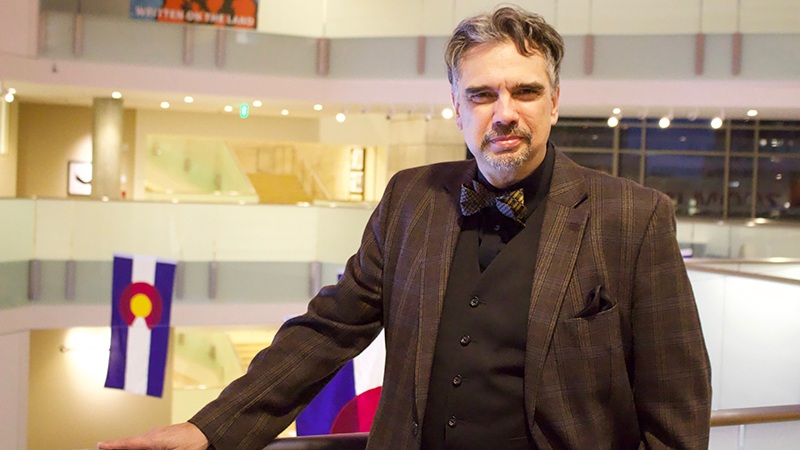Abandon Hope
Leer en español
Miguel De La Torre, PhD, a professor of social ethics and Latinx studies at the Iliff School of Theology in Denver. Photo by Rachel Mondragon
By Kristin Jones
Before Miguel De La Torre, PhD, a professor and ethicist, abandoned hope as a theological principle, he abandoned Hope College.
The religiously affiliated college in Michigan became increasingly cranky with De La Torre after their tenured professor defended SpongeBob SquarePants from leaders of the Christian right who accused the cartoon character (and its creators) of spreading a pro-gay agenda.
De La Torre, an ordained Southern Baptist minister, skewered this notion with evident glee and then asked in seriousness: “Does not Christ call us to love our (white, black, Latino/a, Native American and yes gay) neighbor as ourselves?”
That was 15 years ago. Now at Iliff School of Theology in Denver, De La Torre is still finding ways to ruffle feathers.
This time, he’s after the idea of hope itself—a god, if there ever was one, in the secular humanist and center-left space that Denver-based nonprofits and funders most comfortably occupy. He told us about it at History Colorado Center, at a talk The Trust organized as part of a series we call… HELS. (Look, it’s short for Health Equity Learning Series, ok?)
We at The Trust hope to help Coloradans attain good health and equality, to end poverty and racism, to build better communities. We hope constantly. We are always hoping.
De La Torre called B.S.: Your god of hope is satanic, he told us. Your god allowed slavery, the Holocaust, the genocide of Indigenous people. Your god allows you an excuse for inaction in the face of injustice, and a reprieve from examining your own complicity in the structures of oppression. Your god allows you to relax, knowing that it will all work out in the end.
Instead of our pat hope, it would be better if we stopped hoping, De La Torre suggested. It would be better to act not because we will change things, but in order to honor our own humanity in an oppressive and unfair world.
Then, just then, maybe we’d be taking the radical actions that are necessary.
“The opposite of hope is not despair,” said De La Torre. “The opposite of hope is desperation.”
Watch De La Torre’s talk and judge for yourself.

